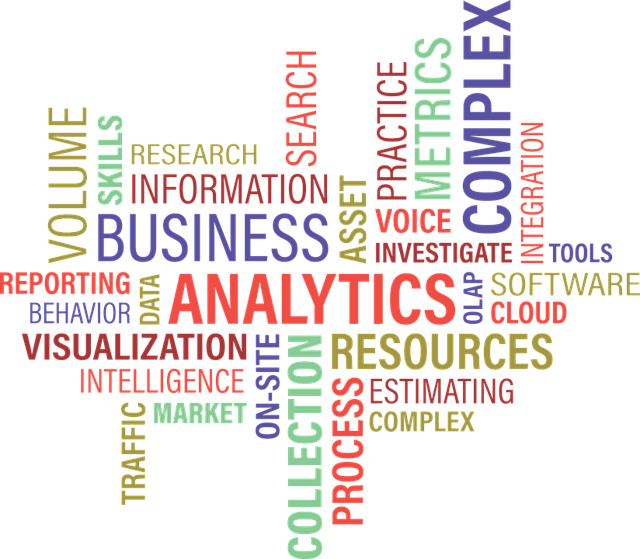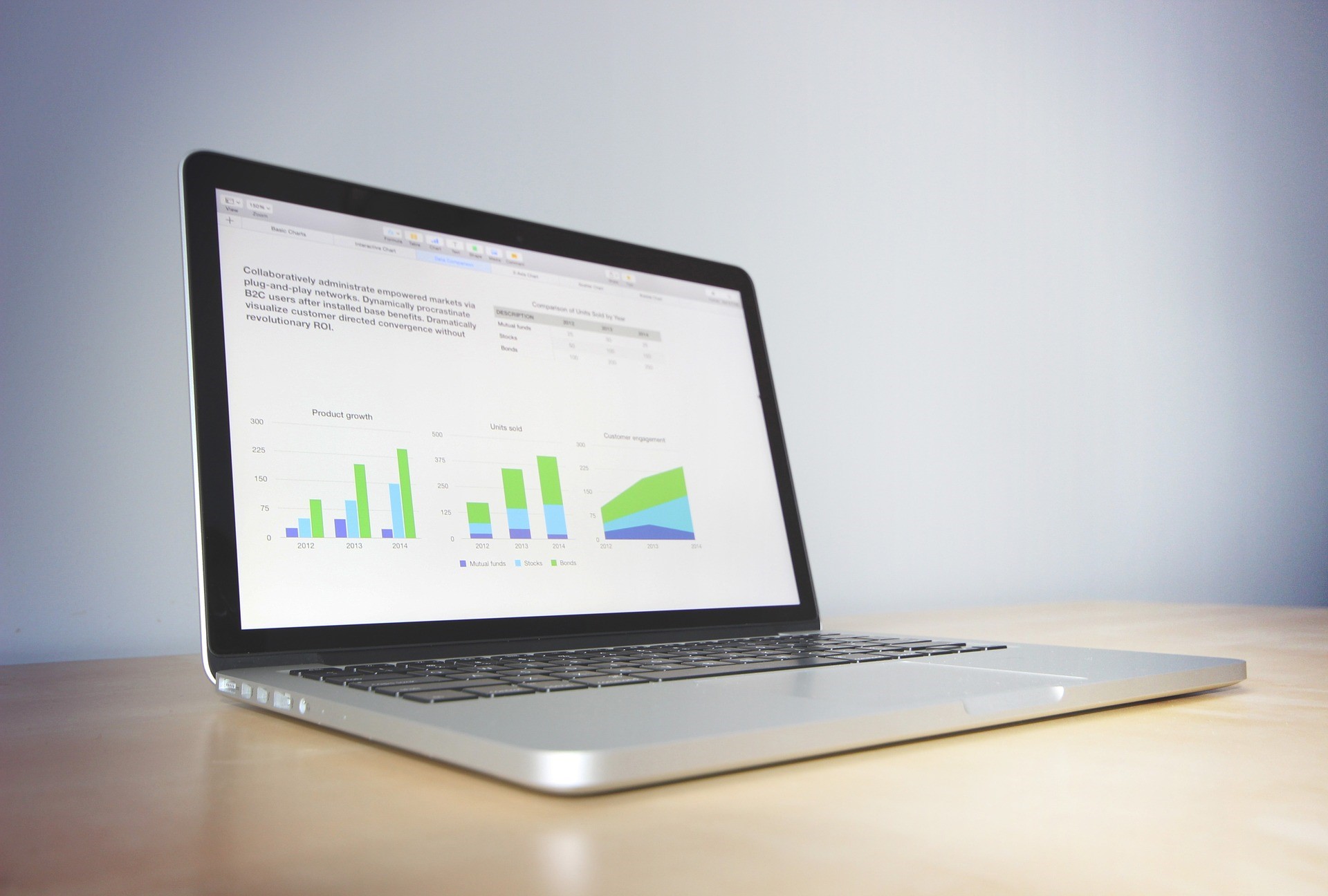
Job costing is a crucial aspect of your business. It’s vital to set the right prices for your products and services to ensure that your business makes a profit. Although the process may seem simple enough on the surface, it can be tricky and time-consuming to do well. Here’s what you need to know to get job costing right for your business:
The basic principle behind job costing is to determine all of the necessary components of a particular job and how much each of those components costs. These can include parts and materials, shipping and transportation, worker wages, and even overheads to name just a few. The specific components you will use in your job costing calculations will depend on the products or services your company offers and what is necessary to produce them.
Using your integrated business management software (like MYOB Exo) is a key component in getting a handle on the costs involved in each job. Your accounting software will give you a breakdown of your daily overhead costs and your parts invoices, your payroll function will give you an idea of the wage costs, and even your time entry system can give you a better idea whether staff are over-servicing on certain jobs or product production so you can adjust your costs accordingly.
Once you have a general sense of how much each component costs, you can calculate how much the job will cost as a whole. By combining all of the included costs into one figure, you can determine an appropriate price for your products and services to generate income for your business. A job costing module that integrates with all of these modules can pull in the necessary elements and do the calculations for you.
If you are unaware of the actual costs of producing your company’s goods and services, you run the risk of undervaluing them, thus hindering your business’s ability to turn a profit. If you go too far in the other direction and overprice your offerings, your customers may leave for your competitors who offer fairer prices in relation to the value of the work.
Particularly if you are in a service-related business, you may offer your clients price quotes before you begin the work, so you’ll want your quotes to be as accurate as possible. If you quote too high, you could lose the job to another service provider with lower rates. On the other hand, if your quote is too low, you run the risk of upsetting your customers when the project goes over budget. Job costing will help you find the balance between the two, giving you the most accurate estimates possible.
Aside from benefiting your customers with fair pricing, job costing also has a host of benefits for your business itself. Your preliminary job cost estimates will give you a benchmark against which to compare your actual costs. For example, you may notice that it took your team longer to complete a job than you had originally anticipated, resulting in higher wage costs for the job. This could alert you to potential productivity issues among your team or could be a sign that you are underestimating the amount of work involved. Either way, you’ll be able to adjust your prices accordingly.
Frequent monitoring of your costs will enable your business to stay on top of changes in the marketplace with regards to the price of materials. Even small changes could have major impacts on your costs. If left unchecked for long periods of time, these rising costs could eventually put your company out of business if your prices do not rise accordingly.
Calculating job costs by hand is time-consuming and increases the risk of error. It is also extremely difficult to track trends and changes over time. With business management software, like the EXO Job Costing Module from Horizon Business Systems, you’ll have all the data you need right at your fingertips. You’ll be able to print out detailed estimates for your clients, showing all of the information they need to make an educated decision about employing your services. Finally, staying on top of your job costing gives your business the greatest chance of succeeding financially through careful monitoring and adaptation.
To find out how our business management software can give you the power to create more accurate jobs costings, just get in touch with our team today!

Running a business is complicated, requiring regular coordination of many different moving parts. Managing a business efficiently is even more complicated – but far from impossible. Using these tips will help you identify problem areas in your business’s flow so that you can move in a more profitable direction.
Outsource to experts
While there are many departments a business runs internally, as businesses become more and more streamlined, hiring experts can be less expensive and better for the company over time. Especially in areas like marketing, IT, and accounting – hiring someone to handle work as necessary may be more efficient than having a fully funded department or in-house specialist that doesn’t have a full workload.
Use a CRM to reduce interaction time
How much time do your sales or customer service reps spend creating call logs, following up on tickets, and reacting to problems with other departments? By using a modern customer relationship management tool (like MYOB EXO’s CRM module), you can streamline your customer interactions. Sales, customer service, and all other departments can easily see all interactions that have occurred with a single customer. This allows any user to understand the customer’s needs very quickly and provide a better customer experience – which in the end will lead to customer retention, repeat business, and good word-of-mouth referrals.
Review Payment Terms
When your business was first starting, you may have often found that you couldn’t negotiate for good terms from vendors. You likely just did not have enough leverage to ask for better terms. As your company grows, however, you often gain more influence on both incoming and outgoing invoice terms. By ensuring that customers pay you as soon as possible, and that you have the best possible terms with vendors, cash flow is optimised. This helps you survive rough patches and maintain consistent inventory levels.
The detailed customisable features of finance modules in business management software (like MYOB EXO’s Finance module) gives companies all the visibility they need to start improving their payment terms.
Improve Asset Management
Managing all the ins and outs of assets is tricky. By investing in an Asset Management tool, you can schedule maintenance to particular personnel, maintain an institutional memory of asset problems and repairs, rather than needing to rely on a particular employee, and make sure that asset work doesn’t interrupt the entire supply line. Asset management tools can also track depreciation over a tool’s lifespan, making accounting easier.
Facilitate Communication Between POS and Finance
If your company still needs to manually export information between your POS system and import it to your finance system, you are wasting crucial hour every day. By using a POS tool that communicates smoothly with the associated finance tool in your business management software, you can see your inventory reflect accurate totals, and see your finances reconcile more quickly.
If you would like to learn more about how our business management software can be used to full effect to get your business running more efficiently, get in touch with Horizon today!


An Enterprise Resource Planning (ERP) solution can be one of the most effective investments that a company can make to enhance efficiency, profitability, and long-term sustainability. However, it is also often one of the most difficult decisions to make, due to the initial effort it takes to implement the software and train staff, as well as the costs involved.
When purchasing an ERP system, there are a number of expenses that have to be taken into consideration beyond just the software. In fact, it is estimated that the actual ERP software only accounts for about 30 percent of the overall expense.
The cost of the actual software will vary based on how dynamic the system needs to be. The more applications that are required and the greater the level of customisation, the more expensive the software. Generally, larger organisations will pay much more than small and mid-sized businesses because they will have to implement a large, highly specialised ERP software solution.
Hardware can take up another 20 percent of the total cost of an ERP system. For small and mid-sized businesses that may not have enough resources to invest in upfront ERP costs, it may make more financial sense to opt for a cloud-based deployment, which involves a software as a service (SaaS) payment model. With a subscription-based ERP solution, no hardware expenses are required, as all the servers and other hardware are housed by the vendor. Also, the maintenance and support costs are generally rolled into the monthly fee. However, cloud-based ERPs are often much ‘lighter’ packages than onsite, so if it’s data-heavy information you’ll need to track, on-site may be a better option or your business.
The more licenses your company requires, the higher your overall ERP costs will be. This is another reason why larger businesses have much larger software expenses. To save on licenses, keep in mind that you don’t need a license for every potential user. You’ll only need to acquire enough for the maximum number of concurrent users.
Whether you are getting your first ERP solution or replacing a legacy system, this is where the bulk of your ERP expenses will go – as much as half of your upfront expenses. Implementation costs cover the following:
Who you choose to take care of your implementation process is going to impact the overall cost. Some ERP vendors will offer implementation services, while others won’t, which means your company could be working with a third-party vendor like an IT provider.
Implementation also includes training costs, an essential area for having a successful implementation process. Research shows that companies who invest heavily in training their staff are more likely to have a successful ERP implementation process. Setting aside less than 13 percent of the overall ERP implementation budget for training is linked to an increased likelihood of going over budget and exceeding project time frames.
One way that businesses can cut these costs is by being as involved in the process as possible. Having an internal project manager from your own staff, as well as a core team that works directly with the ERP vendor, will help the process go more smoothly and will help to prevent the project from going over budget.
To save on training costs, consider preparing several members of your staff to train the rest of your employees. It helps to have several IT professionals or other employees on your team who know your ERP system like the back of their hand. They can not only train others, but they may also be able to help when other staff members run into questions.
The benefits of ERP software include streamlining operations, increasing efficiency, and boosting productivity with a centralised, easy-to-use solution. Because of this, ERP solutions are generally well worth the investment – provided you invest effectively and efficiently in getting the implementation and training processes right from the start. This is the case across the board, from small businesses to enterprise level corporations. To find out how much of a Return on Investment that you may expect from your ERP system, use this tool for finding the ROI of an ERP solution based on your industry.
Learn everything you can about the ERP implementation process and choose a vendor that can answer all your software needs with one integrated, powerful software solution, and you are more likely to benefit immensely from your new system.
If you’d like to speak to our team about how the MYOB Exo or MYOB Advanced ERP systems can benefit your business, get in touch with us today!


How much further could your business go if it was running more efficiently? With a streamlined workflow and many of the costly operational hiccups of day-to-day business eliminated with an Enterprise Resource Planning (ERP) software solution, you will be equipped with the right tools to unlock your organisation’s potential.
Today, many small to mid-sized businesses depend on business management software to get things done, from invoicing to accounting to stock levels to customer management. ERP brings all these solutions into one application, and therefore brings all information into one central hub. This means that an update in sales for example, will also adjust inventory, order management, and financial management. Sometimes described as the nervous system of a business, ERP software allows each area of your business to communicate, relate, and integrate all into one dynamic solution, which has the potential to improve overall operations enormously. Perhaps the greatest aspect of an ERP solution is its versatility; different add-ons can be embedded in the software to suit the specific needs of an organisation – and you can even have custom add-ons designed specifically for your business needs.
Are you considering investing in business management software (like MYOB Exo) but not sure how exactly this software will make a difference? Here are five ways that ERP software can boost efficiency – and your bottom line.
With ERP sofware, it is possible to automate more workplace tasks. With all operational functions rolled into one over-arching management app, you’ll no longer have to spend time ensuring that your stock levels are sufficient in your warehouse, because inventory is automated. Lengthy and cumbersome order fulfilment paperwork can be fully automated as well, as can some facets of marketing, customer service, and accounting. This automation frees up labour hours so employees can work on more productive tasks like research and development and strategic planning.
When all the information that you need about your business can be found through one central platform, you’ll save time looking up data files, cross-checking to ensure that data is accurate, and even searching for lost information. Everything can be found through the ERP software. Having all the data in one place also makes sophisticated forecasting possible – which can help your business form more effective business strategies with a clear picture of the numbers.
This is what really sets ERP software apart from using a series of separate business apps. With a single platform tracking your workflow, you can spot exactly where you’re losing money or wasting resources during normal operations. From poorly used warehouse space to honing in on excess production or long wait times, you’ll be able to recognise where you can make changes to help your business run more efficiently.
Accounting, sales, customer service, and other departments can more easily communicate with each other because everyone is working through a central platform. When someone from sales enters data for example, the accounting department receives the same information, and in real-time. Not only does this make the flow of work between departments easier, but it also reduces the lost time and resources caused by errors, which are an inevitable by-product of using multiple apps.
Many businesses opt to embed a Customer Relations Management (CRM) app in their ERP solution, which can completely revolutionize the way your business interacts with customers. This will make the order management process simple, ensure more accurate inventory updates, and allow customers to keep track of their orders along the way. It also allows your organisation’s customer service team to spend their time interacting with customers, rather than doing the tasks and tracking that your ERP can do. When CRM is separate, managing the customer lifecycle becomes difficult as you would have to track data through the lifecycle from different applications, and then bring this information together in order to make a clear assessment.
Businesses with an ERP solution are operating at a great advantage. The more efficient your business is, the more you are able to excel, and grow. Get in touch with us to learn more about how MYOB EXO can improve your business’ efficiency.

Accounting is a key aspect of any business, so it is important that it is done properly and efficiently. Utilising accounting software can greatly contribute to the process, streamlining your accounting operations so that you can spend more time focussing on other aspects of running your business. Here’s how accounting software can help you:

With traditional paper/manual Excel sheet accounting, each transaction must be entered by hand, often in multiple accounts. Everything must be handled meticulously to ensure that all entries are completed properly. Accounting software makes it easier to get the accounting done quickly. Many software applications automate everything for you, ensuring that each entry is allocated properly with minimal time and effort.
When errors occur in the accounting process, it is often a result of human error. Whether it is through entering data in the wrong column or account, or through mistakes in calculations, the human element greatly increases the risk of discrepancies in the books. With accounting software, you know that calculations will always be done correctly. With many accounting software applications, there are in-built checks that can alert you if a transaction may be entered incorrectly, helping to reduce errors even more.
When tax time comes around each year, many businesses scramble at the last minute to obtain the data they need to lodge their taxes properly. Any errors can result in fines or audits, putting added pressure on your business. Accounting software makes the tax lodging process easier by compiling all of the necessary data for you. In some cases, you can even complete your tax forms directly within the software, making things even easier and saving you a lot of headaches throughout the process.

Knowing exactly what is going on with your business’ finances is crucial to keeping it successful. Creating financial reports can take a lot of time when doing it by hand, which can take you away from the day-to-day aspects of running your company. Instead of taking the time to do this yourself, accounting software is capable of creating detailed reports for you automatically. In addition, the extensive reporting capabilities in most accounting software applications can give you access to data that you would have been unable to examine on your own due to the time involved in completing the calculations.
Forecasting capabilities are one of the most useful features in many accounting software applications. By analysing past data and trends, as well as your sales projections, accounting software can often generate predictions regarding the future cash flow of your organisation. This can be of great assistance in planning future courses of action for your company, such as when would be a good time to invest in an equipment upgrade for example.
As with creating financial reports, developing forecasts can be incredibly time-consuming when done by hand. Having this information at your fingertips, within the software application, can help you to make informed decisions about how to proceed.
Here at Horizon Business Systems, we are committed to providing market-leading accounting software to help businesses all across Australia. Our team of associates would be happy to discuss our products and services with you further to help you understand how we can help you take your business to the next level. Call us at 61 8 9328 1678 or get in touch with us online for more information. Your business’ success is our business, and we will work with you to help make it happen.